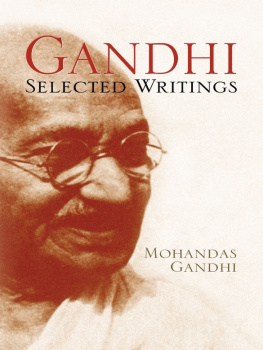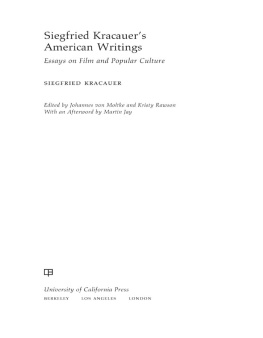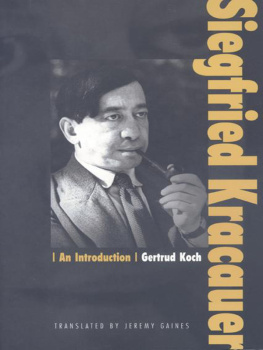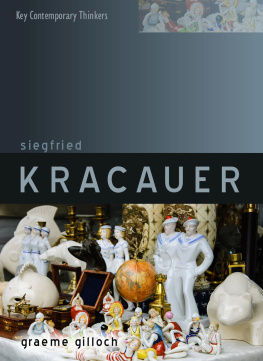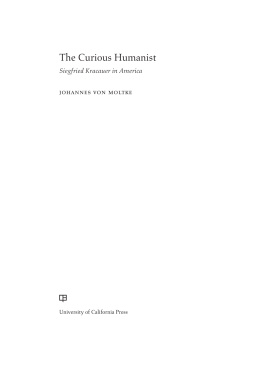Siegfried Kracauer - Selected Writings on Media, Propaganda, and Political Communication
Here you can read online Siegfried Kracauer - Selected Writings on Media, Propaganda, and Political Communication full text of the book (entire story) in english for free. Download pdf and epub, get meaning, cover and reviews about this ebook. year: 2022, publisher: ColumbiaUP, genre: Romance novel. Description of the work, (preface) as well as reviews are available. Best literature library LitArk.com created for fans of good reading and offers a wide selection of genres:
Romance novel
Science fiction
Adventure
Detective
Science
History
Home and family
Prose
Art
Politics
Computer
Non-fiction
Religion
Business
Children
Humor
Choose a favorite category and find really read worthwhile books. Enjoy immersion in the world of imagination, feel the emotions of the characters or learn something new for yourself, make an fascinating discovery.

- Book:Selected Writings on Media, Propaganda, and Political Communication
- Author:
- Publisher:ColumbiaUP
- Genre:
- Year:2022
- Rating:5 / 5
- Favourites:Add to favourites
- Your mark:
- 100
- 1
- 2
- 3
- 4
- 5
Selected Writings on Media, Propaganda, and Political Communication: summary, description and annotation
We offer to read an annotation, description, summary or preface (depends on what the author of the book "Selected Writings on Media, Propaganda, and Political Communication" wrote himself). If you haven't found the necessary information about the book — write in the comments, we will try to find it.
Selected Writings on Media, Propaganda, and Political Communication — read online for free the complete book (whole text) full work
Below is the text of the book, divided by pages. System saving the place of the last page read, allows you to conveniently read the book "Selected Writings on Media, Propaganda, and Political Communication" online for free, without having to search again every time where you left off. Put a bookmark, and you can go to the page where you finished reading at any time.
Font size:
Interval:
Bookmark:
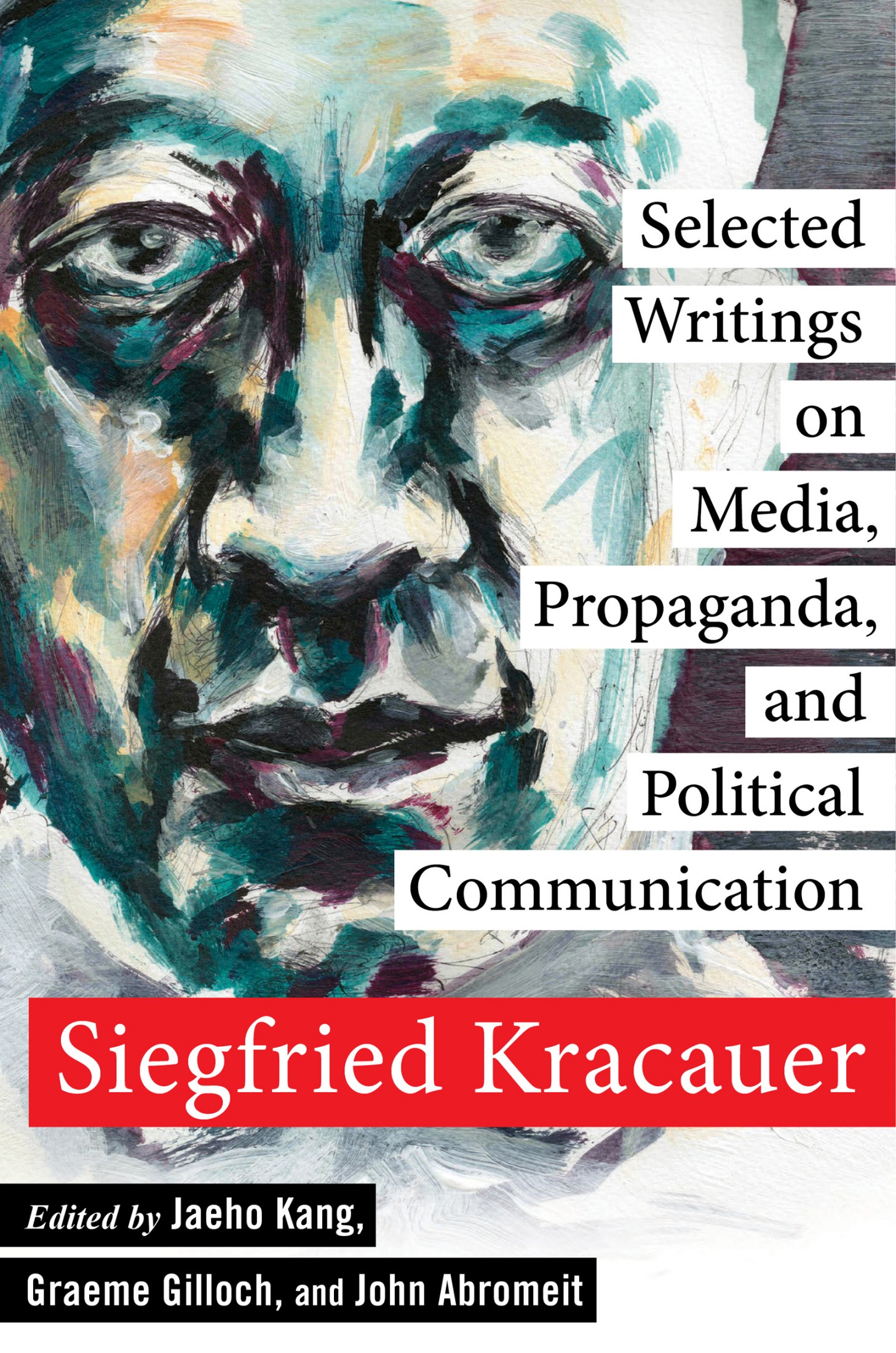
Selected Writings on Media, Propaganda, and Political Communication
NEW DIRECTIONS IN CRITICAL THEORY
NEW DIRECTIONS IN CRITICAL THEORY
Amy Allen, General Editor
New Directions in Critical Theory presents outstanding classic and contemporary texts in the tradition of critical social theory, broadly construed. The series aims to renew and advance the program of critical social theory, with a particular focus on theorizing contemporary struggles around gender, race, sexuality, class, and globalization and their complex interconnections.
For a complete list of titles, see
Selected Writings on Media, Propaganda, and Political Communication
Siegfried Kracauer
Edited by Jaeho Kang, Graeme Gilloch, and John Abromeit
Columbia University Press
New York

Columbia University Press
Publishers Since 1893
New YorkChichester, West Sussex
cup.columbia.edu
Copyright 2022 Columbia University Press
All rights reserved
E-ISBN 978-0-231-55566-1
Library of Congress Cataloging-in-Publication Data
Names: Kracauer, Siegfried, 18891966, author. | Kang, Jaeho, 1969 editor. | Gilloch, Graeme, editor. | Abromeit, John, 1970 editor.
Title: Selected writings on media, propaganda, and political communication / Siegfried Kracauer ; edited by Jaeho Kang, Graeme Gilloch, and John Abromeit.
Description: New York : Columbia University Press, [2022] | Series: New directions in critical theory | Includes bibliographical references and index.
Identifiers: LCCN 2021036436 (print) | LCCN 2021036437 (ebook) | ISBN 9780231158961 (hardback) | ISBN 9780231158978 (trade paperback) | ISBN 9780231555661 (ebook)
Subjects: LCSH: Mass mediaPolitical aspects. | Mass media and propaganda. | Communication in politics.
Classification: LCC P95.8 .K73 2022 (print) | LCC P95.8 (ebook) | DDC 320.01/4dc23/eng/20211102
LC record available at https://lccn.loc.gov/2021036436
LC ebook record available at https://lccn.loc.gov/2021036437
A Columbia University Press E-book.
CUP would be pleased to hear about your reading experience with this e-book at .
Cover design: Noah Arlow
Cover image: Henrik Hjort, Siegfried Kracauer
For Ulrich Oevermann
T his anthology is intended as a contribution to the wider dissemination of the work of the German social, cultural and film theorist Siegfried Kracauer (18891966), a highly original and critical thinker, whose manifold and varied writings are gaining an ever wider and increasingly appreciative readership across the humanities and social sciences. In presenting a selection of his numerous works examining propaganda, political communication, and media research, we address themes, concepts, and motifs that, while clearly corresponding to many of Kracauers other works, have nevertheless not hitherto been prominent in its anglophone reception. Many of his concerns in these writings are all too relevant for us today. The prophets of deceitas Leo Lowenthal and Norbert Gutermann so memorably described them back in 1949are not only still among us, but they prosper now in new guises and have at their disposal unprecedented technological means of mass propagation and circulation, modes of ideological transmission and forms of interaction unimaginable in Kracauers own lifetimesatellite channels, digital platforms, the internet and social media. The mediascape of the mid-twentieth century was very different from that of todaythere are probably very few still living who can recall watching newsreels at the cinema. So if the medium is indeed the message, then the message now would bear little relation to that even of the recent past. But reading Kracauers explorations of, for example, fascist propaganda, one is struck repeatedly by the pertinence and perspicacity of his work, and by its relevance. Time and again, his pioneering insights into the promulgation of deceptions and duplicities by charismatic leaderscharlatans invoking the people while stereotyping and stigmatizing others; promoting prejudice and pandering to racism, xenophobia, and anti-Semitism; mythologizing the nation and its historyreveal the authoritarian fulminations of our post-truth world as the nothing-new of rancid rhetoric, the poisonous regurgitations of lies and hand-me-down hate. We are certainly not the first generations to encounter political leaders and pretenders asserting alternative facts, decrying the fake news of critical alternative voices, and peddling conspiracy theories to listeners all too willing to conspire. It seems some messagesshrill, verbose, toxichave changed less than the media which configure and carry them. Reading Kracauer the question arises: how different are digital demagogues from analogue ones?
The texts in this anthology explore themes beyond the hucksters of authoritarian propaganda, be they twentieth or twenty-first century specimens. In the 1950s, Cold War politics also looked to strategies of ideological persuasion targeting national populations, what now goes under the rubric of soft power. Kracauer was commissioned to report on the efficacy of media operating transnationally and interculturally in the propagation of pro-Western, pro-liberal-democratic, pro-capitalist values, sentiments, and sensibilities. He was also to attend to and assess the satellite mentalities of Soviet-controlled Eastern Europe and the influence and reach of American radio broadcasts on popular perceptions in the peripheral countries around the Mediterranean. In short, he was tasked by American government agencies and others with investigating and evaluating the potentialities of, and challenges to, American ideological and cultural global hegemony, the universalization of the American way of life as an ideal, the dream of the American dream. At the same time, Kracauers critical eye was also turned to matters closer at hand, to what this American lifestyle comprised, how it was configured and, in particular, how it was insistently promoted. Indeed, the formation and inculcation of a particular habitus, of everyday ways of living and seeing, the adoption of certain attitudes and validation of tastes claimed as ones own, were the mundane, routine work of the American advertising and marketing industries. Envisioning and celebrating youthfulness, vitality and clean-living, advertising does much more than promote this or that individual product. Rather, it works normatively, enforcing and policing the normativity of the normal, disciplining, domesticating, and fashioning our all-too-docile bodies. Even the most banal advertising plays its part in the creation of predictability, homogeneity, and conformitythe production of the mass for the profits of mass production and, concomitantly, for the contemporary prophets of deceit too. For it is precisely this, the dissolution of the individual, the subject, the distinctive, the idiosyncratic, the other, the heretical, into the compliant complacent mass that is central to Kracauers critique of capitalist modernity and the work of contemporary media. The mass media produce the mass. And the mass is the very stuff of fascism. This is the message of these media. And so, this might beg the question today: what kind of social is produced by social media is the question we confront today.
We were rather nave. When we first embarked upon this anthology we had little sense of how long and how complex the process of its completion and publication would prove to be. To begin with: how do you solve a problem like NYANA? Following Kracauers death in 1966, the rights for his works passed to the New York Association for New Americans (NYANA), a charitable organization set up in 1949 to help immigrants establish themselves in the United States in the wake of the Second World War. The association was, however, dissolved in 2008, leaving the issues of copyright and permissions completely opaque. Thanks to the kind support, good-will and industry of the Deutsche Literatur Archiv (DLA) in Marbach am Neckar, the holders of Kracauers archive, of Suhrkamp Verlag, the University of California Press and our own publishers at Columbia University Press, the copyright issue was fortunately resolved. Then there was the selection of materials. The inclusion of some materials was straightforward; but what to do with the 150-page
Font size:
Interval:
Bookmark:
Similar books «Selected Writings on Media, Propaganda, and Political Communication»
Look at similar books to Selected Writings on Media, Propaganda, and Political Communication. We have selected literature similar in name and meaning in the hope of providing readers with more options to find new, interesting, not yet read works.
Discussion, reviews of the book Selected Writings on Media, Propaganda, and Political Communication and just readers' own opinions. Leave your comments, write what you think about the work, its meaning or the main characters. Specify what exactly you liked and what you didn't like, and why you think so.

